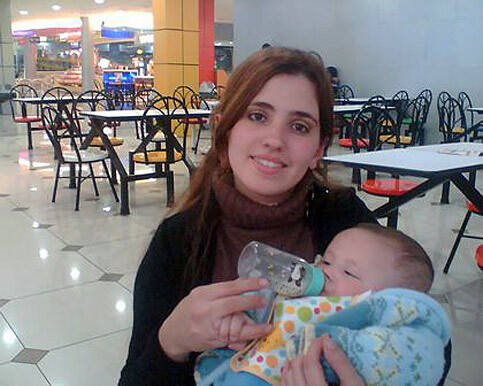Birzeit University Right to Education Campaign 6 January 2007

Birzeit student Fadah Ihlal Thum was ‘denied entry’ in December 2006.
Since the beginning of 2006, many thousands of Palestinian foreign passport holders have been denied entry to visit, work or study in the occupied Palestinian territories (oPt). This policy has brought tremendous insecurity to Birzeit University and its financial and academic wellbeing.
From March to September 2006 there has been a 50 percent drop in foreign passport holding staff, leaving most departments at the risk of being forced to drop courses and of losing irreplaceable lecturers on specialist areas. One department in particular risks losing up to 70 percent of its staff. Currently there are at least 14 faculty members who are at risk of not being able to continue teaching, and 383 students who fear deportation or prison sentences if they are caught at checkpoints.
The Arabic language and culture programme is particularly at risk as it is entirely self-sufficient and dependent on their foreign students’ access to the University. In the last term alone, four students were not allowed to complete their studies as they were not allowed to enter or re-enter the oPt. The programme is also a major source of emergency funds for the university, which has recently come into use to cover staff salaries since the economic blockade post the 2006 elections. Since Israel’s restrictions on access to Palestinian education, applications for next term’s course fell by 50 percent - taking with it 50 percent of the programme’s income.
However, for the first time since the prevalence of this deportation policy, the Israeli government has allocated an official to be responsible for the right to enter the Palestinian territories, Maj. Gen. Mishlav. In December 2006, Mishlav told EU officials that their policy has changed and that those given ‘last permits’ would be able to stay and renew their visas. However, this does not help those who are already outside and have ‘denied entry’ stamped in their passports, as is the case for two of Birzeit’s faculty staff: Somida Abbas and Bahgat Taiam.
This apparent ‘promise’ has also not helped one of Birzeit’s best students, Fadah Ihlal Thum. Fadah is in her final year and has twice received Birzeit’s rare and prestigious ‘honour’ award. She came to live in the West Bank in 2001, is married to a local Palestinian and has a five-month-old baby. Not only is she an excellent student, she is also a wife and a mother, and has a bright future ahead of her if she is able to complete her degree in French and English, particularly as she already fluently speaks Arabic and Portuguese.
Fadah had been renewing her visa internally as is permitted to some residents until her last renewal in September 2006 when, along with hundreds of others, she was suddenly given a ‘last permit’ stamp on her visa and was forced to leave her home, husband and baby in December. A few days after leaving, she tried to return and was ‘denied entry’. This came just two days after Maj. Gen. Mishlav made his promises that Israel had changed its policy. A new and fair policy is clearly not in place.
What you can do:
Please write to Maj. Gen. Mishlav highlighting the three cases mentioned above and calling on him to allow ALL those who wish to study, work or be with their families in the oPt, to be allowed to do so just as they would if they were entering any other country.
It is essential that a permanent solution to be found, and that proper residency rights be instated to those who have settled in oPt, and that a proper system be created for study and work visas.
Please send your letters and faxes of protest to:
Maj. Gen. Mishlav
COGAT - Coordinator of Office Activities in the Territories
Coordinator Office
Hakirya
Tel Aviv
Israel
Fax: 03 697 6306
Please also copy your letters to your country representative in Israel in order to help build diplomatic pressure from within.
Related Links